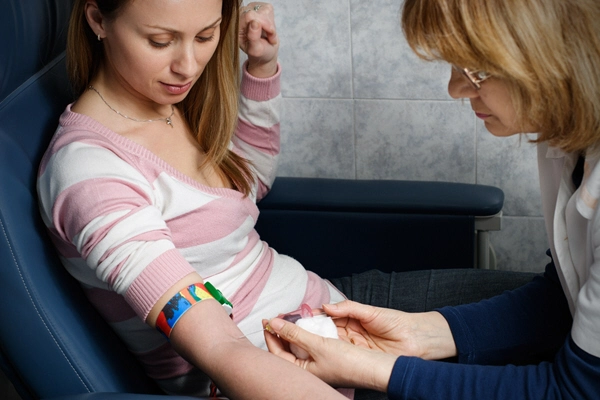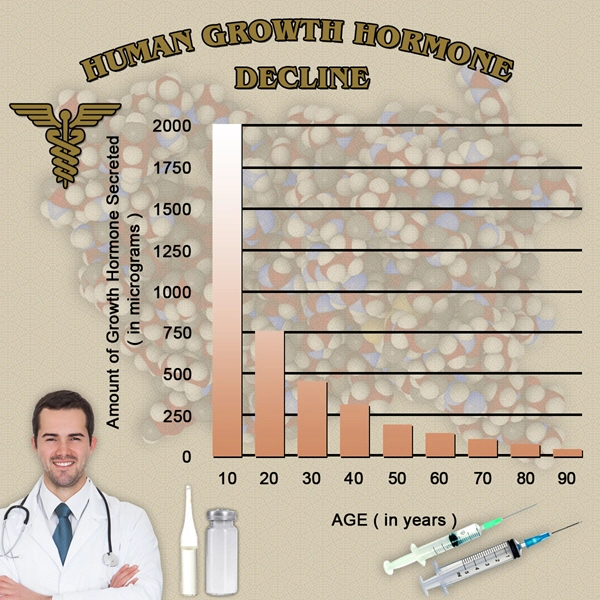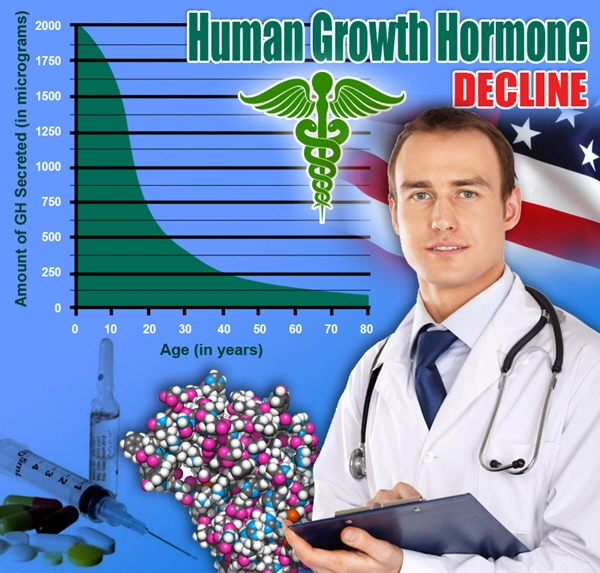Introduction to Penile Irritation
Penile irritation is a common concern among American males, affecting individuals across various age groups. This condition can manifest in several ways, ranging from mild discomfort to severe pain, and can significantly impact one's quality of life. Understanding the underlying causes, recognizing the symptoms, and exploring effective dermatological treatments are crucial steps in managing and alleviating this condition.
Causes of Penile Irritation
Penile irritation can arise from a multitude of sources, each requiring a tailored approach for effective management. One of the primary causes is **friction**, often resulting from vigorous sexual activity or masturbation. Friction can lead to micro-tears in the skin, causing irritation and discomfort. Another common cause is **allergic reactions** to substances such as latex in condoms, spermicides, or certain lubricants. Dermatitis, a type of skin inflammation, can also be triggered by soaps, detergents, or fabric softeners.
Infections, both bacterial and fungal, represent another significant cause of penile irritation. **Balanitis**, an inflammation of the glans penis, is often associated with poor hygiene or underlying conditions like diabetes. Similarly, **yeast infections**, particularly candidiasis, can cause itching and irritation, especially in uncircumcised men. Sexually transmitted infections (STIs) such as **herpes** and **genital warts** can also manifest as penile irritation, necessitating prompt medical attention.
Symptoms of Penile Irritation
The symptoms of penile irritation can vary widely depending on the underlying cause. Common signs include **redness**, **itching**, and **swelling** of the affected area. In more severe cases, individuals may experience **pain**, **burning sensations**, or **discharge**. It is essential to monitor these symptoms closely, as they can indicate the need for immediate medical intervention, especially if accompanied by fever or difficulty urinating.
Dermatological Treatments for Penile Irritation
Effective management of penile irritation hinges on accurate diagnosis and targeted treatment. For cases stemming from friction or mild allergic reactions, **topical emollients** and **moisturizers** can provide relief by soothing the skin and reducing irritation. Over-the-counter **antihistamines** may also be beneficial in alleviating itching caused by allergic reactions.
When infections are the root cause, **antifungal** or **antibacterial** medications are typically prescribed. For balanitis, maintaining good hygiene and using topical corticosteroids can help reduce inflammation. In cases of yeast infections, antifungal creams such as clotrimazole are effective in treating the condition. For STIs, specific antiviral or antibiotic treatments are necessary, and it is crucial to consult a healthcare provider for appropriate management.
In situations where the irritation is severe or persistent, **dermatological consultation** is recommended. Dermatologists can perform patch testing to identify allergens and prescribe stronger medications if needed. Additionally, they can offer guidance on lifestyle modifications, such as wearing loose-fitting clothing and avoiding irritants, to prevent future occurrences.
Preventive Measures and Lifestyle Adjustments
Prevention plays a vital role in managing penile irritation. Maintaining good hygiene practices, such as regular washing with mild, fragrance-free soaps, can help reduce the risk of infections. Choosing hypoallergenic products and avoiding known irritants can also minimize the likelihood of allergic reactions. For sexually active individuals, using condoms can protect against STIs and reduce friction-related irritation.
Lifestyle adjustments, such as wearing breathable fabrics and avoiding tight-fitting underwear, can further contribute to preventing penile irritation. Regular check-ups with a healthcare provider can ensure early detection and treatment of any underlying conditions that may predispose individuals to irritation.
Conclusion
Penile irritation is a prevalent issue among American males, but with the right knowledge and approach, it can be effectively managed. By understanding the causes, recognizing the symptoms, and utilizing appropriate dermatological treatments, individuals can alleviate discomfort and improve their overall well-being. Embracing preventive measures and making informed lifestyle choices are essential steps in maintaining penile health and preventing future occurrences of irritation.

- Navigating the Psychological Terrain of Penile Health: Insights for American Males [Last Updated On: February 21st, 2025] [Originally Added On: February 21st, 2025]
- Managing Penile Skin Conditions: Symptoms, Treatments, and Preventive Care for American Males [Last Updated On: February 22nd, 2025] [Originally Added On: February 22nd, 2025]
- Testosterone's Crucial Role in Male Penile Health and Sexual Function [Last Updated On: March 18th, 2025] [Originally Added On: March 18th, 2025]
- Genetics of Penile Development: Insights and Implications for American Male Health [Last Updated On: March 19th, 2025] [Originally Added On: March 19th, 2025]
- Optimal Penile Hygiene Practices for American Males: Health and Sexual Wellness Guide [Last Updated On: March 19th, 2025] [Originally Added On: March 19th, 2025]
- Penile Enlargement: Methods, Efficacy, Safety, and Psychological Impacts Explored [Last Updated On: March 19th, 2025] [Originally Added On: March 19th, 2025]
- Penile Trauma: Types, Emergency Care, and Long-term Management for American Males [Last Updated On: March 19th, 2025] [Originally Added On: March 19th, 2025]
- Penile Ulcers in American Males: Causes, Diagnosis, and Treatment Strategies [Last Updated On: March 19th, 2025] [Originally Added On: March 19th, 2025]
- Penile Nerve Blocks: Enhancing Pain Management and Surgery in American Males [Last Updated On: March 20th, 2025] [Originally Added On: March 20th, 2025]
- Obesity's Impact on Penile Health: Physiological and Psychological Effects on American Males [Last Updated On: March 20th, 2025] [Originally Added On: March 20th, 2025]
- Advancements in Penile Prostheses: Enhancing ED Treatment for American Males [Last Updated On: March 21st, 2025] [Originally Added On: March 21st, 2025]
- Penile MRI: Revolutionizing Diagnosis of Male Health Issues in America [Last Updated On: March 21st, 2025] [Originally Added On: March 21st, 2025]
- Penile Biopsy: Diagnosis, Procedure, and Impact for American Males [Last Updated On: March 21st, 2025] [Originally Added On: March 21st, 2025]
- Pharmacological Effects on Penile Function: Insights for American Males [Last Updated On: March 22nd, 2025] [Originally Added On: March 22nd, 2025]
- Hormonal Imbalances and Their Impact on Penile Health in American Males [Last Updated On: March 23rd, 2025] [Originally Added On: March 23rd, 2025]
- Dietary Impact on Penile Health: Nutrition for American Males' Vascular and Hormonal Balance [Last Updated On: March 23rd, 2025] [Originally Added On: March 23rd, 2025]
- Penile Sensory Neuropathy: Symptoms, Diagnosis, and Management Strategies for American Males [Last Updated On: March 23rd, 2025] [Originally Added On: March 23rd, 2025]
- Lifestyle Choices Impacting Penile Health: Diet, Exercise, and More for American Males [Last Updated On: March 23rd, 2025] [Originally Added On: March 23rd, 2025]
- Understanding Penile Vascular Health: Science, Prevention, and Treatment for American Males [Last Updated On: March 23rd, 2025] [Originally Added On: March 23rd, 2025]
- Penile Skin Grafts: Procedures, Recovery, and Outcomes for American Males [Last Updated On: March 23rd, 2025] [Originally Added On: March 23rd, 2025]
- Penile Ultrasound: Diagnosing Sexual Dysfunction in American Males [Last Updated On: March 23rd, 2025] [Originally Added On: March 23rd, 2025]
- Penile Nerve Health: Crucial for American Males' Sexual Function and Well-being [Last Updated On: March 23rd, 2025] [Originally Added On: March 23rd, 2025]
- Penile Lymphatic System: Functions, Disorders, and Health Maintenance for American Males [Last Updated On: March 23rd, 2025] [Originally Added On: March 23rd, 2025]
- Advancements in Penile Reconstruction: Techniques, Technologies, and Patient Outcomes [Last Updated On: March 24th, 2025] [Originally Added On: March 24th, 2025]
- Understanding and Managing Penile Allergies: Symptoms, Diagnosis, and Strategies [Last Updated On: March 24th, 2025] [Originally Added On: March 24th, 2025]
- Chemotherapy's Impact on Penile Health: Side Effects and Management Strategies [Last Updated On: March 24th, 2025] [Originally Added On: March 24th, 2025]
- Understanding and Managing Penile Swelling: Causes, Diagnosis, and Treatment for American Males [Last Updated On: March 24th, 2025] [Originally Added On: March 24th, 2025]
- Penile Warts: Causes, Symptoms, Diagnosis, and Treatment Options for American Males [Last Updated On: March 24th, 2025] [Originally Added On: March 24th, 2025]
- Penile Prosthetics: Effective Solution for Severe Erectile Dysfunction [Last Updated On: March 25th, 2025] [Originally Added On: March 25th, 2025]
- Understanding Penile Discharge: Causes, Symptoms, and Treatment Options for American Males [Last Updated On: March 25th, 2025] [Originally Added On: March 25th, 2025]
- Spinal Cord Injuries: Impact on Penile Function and Treatment Options for American Males [Last Updated On: March 25th, 2025] [Originally Added On: March 25th, 2025]
- Penile Veins: Anatomy, Function, and Disorders in American Males [Last Updated On: March 25th, 2025] [Originally Added On: March 25th, 2025]
- Penile Girth's Impact on Sexual Satisfaction: Medical Insights and Psychological Effects [Last Updated On: March 25th, 2025] [Originally Added On: March 25th, 2025]
- Exploring Penile Sensitivity: Impact on Male Sexual Health and Well-being [Last Updated On: March 25th, 2025] [Originally Added On: March 25th, 2025]
- Understanding Penile Discoloration: Causes, Symptoms, and Treatment Options for American Males [Last Updated On: March 25th, 2025] [Originally Added On: March 25th, 2025]
- Neurological Disorders and Penile Function: Impacts and Management Strategies for American Males [Last Updated On: March 25th, 2025] [Originally Added On: March 25th, 2025]
- Understanding Penile Lesions: Types, Causes, and Effective Treatments for American Males [Last Updated On: March 25th, 2025] [Originally Added On: March 25th, 2025]
- Penile Arteries: Key to Erection Health and Cardiovascular Wellness in American Males [Last Updated On: March 26th, 2025] [Originally Added On: March 26th, 2025]
- Understanding Penile Bleeding: Causes, Symptoms, and Emergency Care for American Males [Last Updated On: March 26th, 2025] [Originally Added On: March 26th, 2025]
- Understanding Penile Numbness: Causes, Diagnosis, and Treatment Strategies [Last Updated On: March 26th, 2025] [Originally Added On: March 26th, 2025]
- Radiation Therapy's Impact on Penile Health: Effects, Management, and Recovery Strategies [Last Updated On: March 27th, 2025] [Originally Added On: March 27th, 2025]
- Penile Health: Enhancing Life Quality Through Physical, Mental, and Relational Well-being [Last Updated On: March 27th, 2025] [Originally Added On: March 27th, 2025]
- Chronic Diseases' Impact on Penile Health: Diabetes, Heart Disease, Obesity Effects [Last Updated On: March 27th, 2025] [Originally Added On: March 27th, 2025]
- Understanding Penile Sores: Causes, Symptoms, and Treatments for American Males [Last Updated On: March 28th, 2025] [Originally Added On: March 28th, 2025]
- Penile Health and Fertility: Understanding the Vital Connection [Last Updated On: March 28th, 2025] [Originally Added On: March 28th, 2025]
- Understanding and Managing Penile Itching: Causes, Symptoms, and Treatment Options [Last Updated On: March 28th, 2025] [Originally Added On: March 28th, 2025]
- Understanding and Treating Penile Rash: A Guide for American Men [Last Updated On: March 28th, 2025] [Originally Added On: March 28th, 2025]
- Understanding and Managing Penile Pain: Causes, Diagnosis, and Treatment for American Men [Last Updated On: March 28th, 2025] [Originally Added On: March 28th, 2025]
- Penile Injuries: Types, Impacts on Sexual Function, and Prevention Strategies [Last Updated On: March 29th, 2025] [Originally Added On: March 29th, 2025]
- Penile Blood Tests: Diagnosing Systemic Diseases in Men [Last Updated On: March 29th, 2025] [Originally Added On: March 29th, 2025]
- Penile Piercings: Health Risks, Benefits, and Informed Decision-Making for American Males [Last Updated On: March 29th, 2025] [Originally Added On: March 29th, 2025]
- Understanding Penile Lumps: Types, Causes, and Management for American Males [Last Updated On: March 29th, 2025] [Originally Added On: March 29th, 2025]
- Understanding Penile Edema: Causes, Diagnosis, and Treatment Strategies for American Males [Last Updated On: March 31st, 2025] [Originally Added On: March 31st, 2025]
- Penile Health and Mental Well-being: A Comprehensive Analysis for American Males [Last Updated On: April 1st, 2025] [Originally Added On: April 1st, 2025]
- Understanding and Managing Penile Redness: Causes, Symptoms, and Treatments [Last Updated On: April 1st, 2025] [Originally Added On: April 1st, 2025]
- Penile Dermatitis: Symptoms, Causes, and Management Strategies for American Males [Last Updated On: April 1st, 2025] [Originally Added On: April 1st, 2025]
- Penile Health: Enhancing Partner Sexual Satisfaction for American Males [Last Updated On: April 1st, 2025] [Originally Added On: April 1st, 2025]
- Penile Health and STI Prevention: A Comprehensive Guide for American Males [Last Updated On: April 6th, 2025] [Originally Added On: April 6th, 2025]
- Managing Penile Dryness: Causes, Symptoms, and Dermatological Treatments for American Males [Last Updated On: April 7th, 2025] [Originally Added On: April 7th, 2025]
- Understanding Penile Blisters: Causes, Symptoms, and Treatment for American Males [Last Updated On: April 7th, 2025] [Originally Added On: April 7th, 2025]
- Penile Health Impacts on Urinary Function: Insights from Recent Urological Study [Last Updated On: April 7th, 2025] [Originally Added On: April 7th, 2025]
- Managing Penile Foreskin Health: Causes, Symptoms, and Medical Interventions [Last Updated On: April 9th, 2025] [Originally Added On: April 9th, 2025]
- Causes, Diagnosis, and Management of Penile Burning in American Males [Last Updated On: April 9th, 2025] [Originally Added On: April 9th, 2025]
- Penile Sensitivity Disorders: Causes, Diagnosis, and Treatment for American Males [Last Updated On: April 10th, 2025] [Originally Added On: April 10th, 2025]
- Penile Health's Crucial Role in American Male Reproductive Wellness [Last Updated On: April 11th, 2025] [Originally Added On: April 11th, 2025]
- Understanding the Link Between Penile Health and Prostate Wellness in Men [Last Updated On: April 12th, 2025] [Originally Added On: April 12th, 2025]
- Managing Penile Odor: Causes, Symptoms, and Effective Treatments for American Males [Last Updated On: April 12th, 2025] [Originally Added On: April 12th, 2025]
- Penile Health and Hormonal Balance: A Comprehensive Guide for American Males [Last Updated On: April 13th, 2025] [Originally Added On: April 13th, 2025]
- Penile Health as a Cardiovascular Indicator: Insights from a 5-Year Study on American Males [Last Updated On: April 13th, 2025] [Originally Added On: April 13th, 2025]
- Penile Health and Sexual Function: A Comprehensive Guide for American Males [Last Updated On: April 16th, 2025] [Originally Added On: April 16th, 2025]
- Penile Health's Impact on Gastrointestinal Wellness: Insights for American Males [Last Updated On: April 17th, 2025] [Originally Added On: April 17th, 2025]
- Neurological Health's Impact on Penile Sensitivity: Insights for American Males [Last Updated On: April 18th, 2025] [Originally Added On: April 18th, 2025]
- Managing Penile Health in American Males with Endocrine Disorders: Causes, Symptoms, and Strategies [Last Updated On: April 18th, 2025] [Originally Added On: April 18th, 2025]
- Penile and Musculoskeletal Health: Causes, Symptoms, and Treatments for American Males [Last Updated On: April 18th, 2025] [Originally Added On: April 18th, 2025]
- Penile Health and Immune Function: Impacts, Insights, and Interventions for American Males [Last Updated On: April 19th, 2025] [Originally Added On: April 19th, 2025]
- Aging and Penile Sensitivity: Insights and Strategies for American Males [Last Updated On: April 19th, 2025] [Originally Added On: April 19th, 2025]
- Exploring the Link Between Penile Health and Kidney Function in American Males [Last Updated On: April 19th, 2025] [Originally Added On: April 19th, 2025]
- Exploring the Interconnectivity of Penile Health and Respiratory Function in American Males [Last Updated On: April 20th, 2025] [Originally Added On: April 20th, 2025]



List of USA state clinics - click a flag below for blood testing clinics.
Word Count: 602



















































